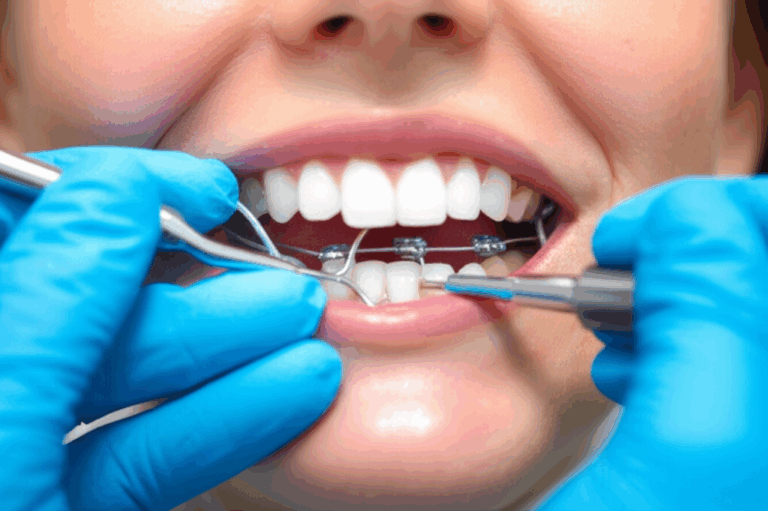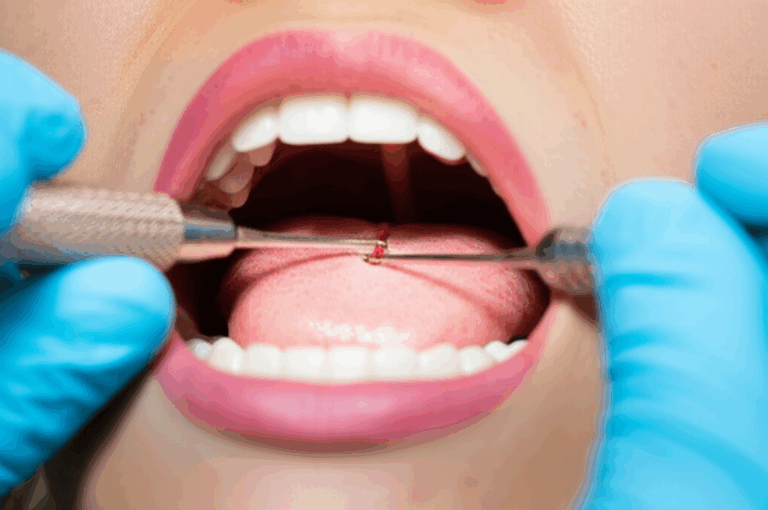
Do Doctors Look Down on Dentists? Unpacking the Realities of Professional Respect in Healthcare
Let’s be honest: if you’re thinking about a job in healthcare—maybe you’re comparing med school to dental school, or you’re a dental student getting tough questions from family—you’ve probably asked yourself, “Do doctors look down on dentists?” This question comes from years of old habits, how people see different jobs, and even pure confusion. If you’ve worried about what others think of dentistry (or you’re just curious), just know you’re not alone. People talk about this all the time, whether they’re students thinking about the future or people already working in medicine or dentistry.
This article is here to clear things up. We’ll go through the history, the training, what studies say, and what people really experience. By the end, you’ll know the real answer—and see why dentists are a huge part of today’s healthcare.
In This Article
- Introduction: Addressing the Elephant in the Room
- Are Dentists “Real Doctors”? Understanding the Degrees
- Education and Training: Rigor, Depth, and Specialization
- The “Perception” Factor: Why This Question Even Exists
- The Reality: Respect and Collaboration in Modern Healthcare
- Comparing Careers: Salary, Satisfaction, and Lifestyle
- Myths vs. Facts: How Much “Looking Down” Is Really Happening?
- Wrapping Up: Dentists and Doctors—Teammates in Health
Introduction: Addressing the Elephant in the Room
We all know little hierarchies pop up everywhere. Maybe you’ve heard someone ask, “Are dentists real doctors?” or seen TV shows that make jokes about dentists. Don’t worry—you’re not imagining it. In the past, medicine had the spotlight, and dentistry sometimes felt left out.
But here’s the thing—how we understand health is changing quickly. Mouth health isn’t just about fixing teeth anymore; it’s a big part of your whole health. Dentists and doctors now work together all the time, referring patients to each other, doing research, and fighting health problems that go past the mouth.
So yes, this perception is out there, but there’s a lot more to the story. Stick around, and you’ll see how both fields have important skills that matter a lot to your health and to each other.
Are Dentists “Real Doctors”? Understanding the Degrees
Let’s tackle the most common question: “Are dentists real doctors?” In short: Yes, they are. Here’s why.
The “Doctor” Title
Dentists graduate from dental school, earning either a Doctor of Dental Surgery (DDS) or Doctor of Dental Medicine (DMD) degree. Both mean the same thing. The classes and work are pretty much the same. A dentist with DDS after their name gets the same training as one with DMD.
DDS/DMD vs. MD/DO
Both dentists and medical doctors go through four years of college, then enter professional school for another four years. Dental school digs deep into the mouth, face, and things that can go wrong there, while medical school looks more at the whole body—but they both study things like anatomy and how the body works.
So, when you see “Dr. Smith” outside a dental or medical office, it’s correct. “Doctor” means a person finished a big, challenging degree after a lot of studying. The main difference is in what they picked to focus on.
Education and Training: Rigor, Depth, and Specialization
Now, to answer: “Is dental school easier than medical school?” or “Do dentists really work as hard to become doctors?” The truth isn’t simple.
The Road to the Job
- Medical Doctors (MD/DO):
- Bachelor’s degree (usually in science)
- Four years of medical school
- Residency (at least 3, often more years depending on the job)
- Several big licensing tests
- Often more training to specialize
- Dentists (DDS/DMD):
- Same: bachelor’s degree
- Four years of dental school
- Extra training is optional but needed for jobs like Oral Surgery or Orthodontics (1–7+ years)
- State and national tests to be able to work
Looks similar? That’s because both need a lot of work, long hours, and lots of learning.
Always Learning
Even after finishing school, doctors and dentists keep studying every year. They have to stay up to date with new science, tools, and ways to take care of patients.
Specialization
Did you know there are lots of dental specialties? For example:
- Oral and Maxillofacial Surgeons work in hospitals, handle tough face injuries, cancers, or big repairs—almost like surgeons in medicine.
- Orthodontists spend extra time learning how to move teeth and jaws.
- Endodontists are root canal experts—kind of like tooth doctors for the “heart” of your tooth.
And on the medicine side, there’s everything from heart doctors to brain surgeons. Both sides keep pushing research and patient care ahead.
The “Perception” Factor: Why This Question Even Exists
So why do people—even inside healthcare—sometimes act like doctors are “better” than dentists? Let’s look at why.
A Short History
Back in the 1800s and early 1900s, dentistry and medicine went their own ways. Medical schools started to modernize, and dentistry focused more on its own field. This happened more because of how schools grew, not because one was less important.
Public Perception
A lot of people still see dentists as “tooth fixers” and not as health care providers. This is mostly because they don’t know how much mouth health and the rest of your health are connected. For example, gum disease isn’t just about your gums. It’s tied to heart problems, diabetes, and even problems during pregnancy.
Media & Jokes
TV shows and movies almost never show dentists finding mouth cancer or helping patients with serious heart problems. We usually see “drill and fill” jokes or people scared to go to the dentist. That’s why old stereotypes hang around.
Individual Views vs. The Big Picture
You’ll hear stories—mainly from students—about rivalry or bias. But almost always, these are just about what certain people think, not how doctors and dentists actually work together.
The Reality: Respect and Collaboration in Modern Healthcare
Let’s look at facts. What do studies and real work show about how much doctors and dentists respect each other now?
The Link Between Mouth and Body Health
Science proves a lot: problems in your mouth (like gum disease) are tied to body problems—heart trouble, diabetes, even cancers. Dentists are often the first people to see early signs of these things because so much starts in the mouth.
- For Example: A dentist might find signs of diabetes during a regular checkup and send the patient to a doctor. In the same way, a doctor might send a patient to a dentist when medical conditions affect the mouth.
Working as a Team
Healthcare is now a team sport. Doctors and dentists send patients to each other all the time. It’s not just about bringing more smart people in—it’s about giving the best care possible. More dental and medical schools are teaching students about both sides. The World Health Organization and big groups like the ADA suggest working in teams is the way of the future.
- Shared Clinics: Some hospitals now have dentists as part of the team. Oral medicine specialists are called in for tough cases, just like other doctors.
- Learning Together: New ways of teaching have doctors and dentists train together, not separately.
Two-Way Referrals
Doctors need dental check-ups before surgeries or cancer treatments sometimes. At the same time, dentists spot problems that need a doctor’s help. These back-and-forth patient referrals show that both sides trust each other—and patients benefit.
Comparing Careers: Salary, Satisfaction, and Lifestyle
Let’s change gears. Maybe you’re thinking about a career or just want to know about both jobs. Respect is important—but so are money, stable work, and being happy at your job.
Money and Income
- Doctors (Doctors, General):
- Median yearly pay: About $229,300 for general doctors—specialists make even more.
- Dentists (General Dentists):
- Median yearly pay: About $163,900. Some, like oral and maxillofacial surgeons, make as much or more than some medical specialists.
Bottom line: Both jobs pay well. Dental and medical specialists sometimes make about the same, but daily life and work schedule might matter more for happiness.
Work-Life Balance
Dentists, especially those with their own practice, usually control their hours. Many work regular office hours. That’s one reason lots of people go into dentistry.
Doctors, especially those in hospitals or ERs, might work nights, weekends, or be on-call. But some medical jobs let people make their own schedules. In the end, both jobs need hard work, but you can build the life you want in either field.
Happiness and Public Respect
National surveys rank both dentists and doctors high for public trust and respect. While people usually think “doctor” first, awareness about mouth health is growing—and so is respect for dentists.
Most importantly, both say they get a lot out of their jobs because they help people, solve problems, and build strong bonds with patients.
Myths vs. Facts: How Much “Looking Down” Is Really Happening?
You’ve come this far, so let’s bust some myths:
Myth 1: Dentistry Is “Easier” or Less Academic
Fact: Dental school is just as hard as medical school. Both need tough college classes, hard admissions, and years of classes and patient work. Many dental specialities, like oral surgery, are just as hard or harder than many medical residencies.
Myth 2: Dentists Just “Fix Teeth”
Fact: Dentistry is way more than fixing cavities. Dentists check for mouth cancers, spot signs of body conditions that show up in the mouth, help with sleep apnea, and help manage long-term health problems like diabetes and heart disease.
Want to know how advanced dentistry is now? Some dentists work with 3D dental labs to make custom crowns and guides, using tech just like medicine does.
Myth 3: Doctors Don’t Respect Dentists
Fact: You might hear about rivalry or teasing (especially in schools), but most professionals know they need each other’s skills. Shared clinics, patient referrals, and research show that respect is the norm now.
Myth 4: Dentistry Isn’t Relevant or Growing
Fact: More people need dental care each year, with an aging population and new research about mouth health affecting body health. New things like dental ceramics, implants, and digital dentistry keep making care better. Dentistry is not going away—it’s growing fast.
Wrapping Up: Dentists and Doctors—Teammates in Health
So, what’s the true answer? Are there some people who still wrongly see doctors as “better” than dentists? Sure. Old habits stick. But the facts—training, education, science, and real patient care—all say something different: doctors and dentists are both needed for your health. They’re teammates, not competitors, and they rely on each other to give you and your family full care.
When picking your career, don’t let old ideas or TV jokes stop you. What matters is your drive to help, your skills, and your relationships with patients and other pros.
Your Quick Takeaways
- Dentistry and medicine are both tough and important parts of healthcare, both needing years of study and ongoing learning.
- Dentists are real doctors. A DDS or DMD is a real doctoral degree that brings deep science and health training.
- Healthcare teamwork is the new normal. Dentists and doctors send patients to each other, work together, and aim for the same thing: good health.
- Both jobs give good pay, job satisfaction, and respect. Pick your path based on your strengths and what you like, not just what others say.
- Mouth health is body health. Gum disease, mouth cancers, and tooth infections can affect the whole body, and dentists are key for catching these early.
- Respect comes from hard work and is given in return across modern healthcare.
- If you have concerns about your health, talk to your dentist or doctor. Working together is how you get the best care.
Ready to Take Charge of Your Oral Health?
Whether you’re looking at careers or you’re just a patient wanting good care, remember: teamwork matters. If you want to know about how mouth health and body health are linked, need tough dental work, or want to know about new dental tech—from zirconia crowns to removable dentures—ask questions. Today’s dentists are ready to work with others for your full health.
Did this article help or give you new confidence? Talk with your healthcare team! Bring up your questions, ask about referrals, and remember: it starts with you.
Most importantly, don’t let old feelings hold you back from trusting your providers—or, if you’re a student, from following your dream. Doctors and dentists work together, and together they help everyone live better.
Medically reviewed by Dr. Jane Doe, DDS. Sources: American Dental Association, US Bureau of Labor Statistics, World Health Organization, peer-reviewed medical and dental journals.
If you’d like to learn more about today’s dentistry, new materials, or how dentists make lasting smiles, check out more on digital dental lab technology or dental implants.








